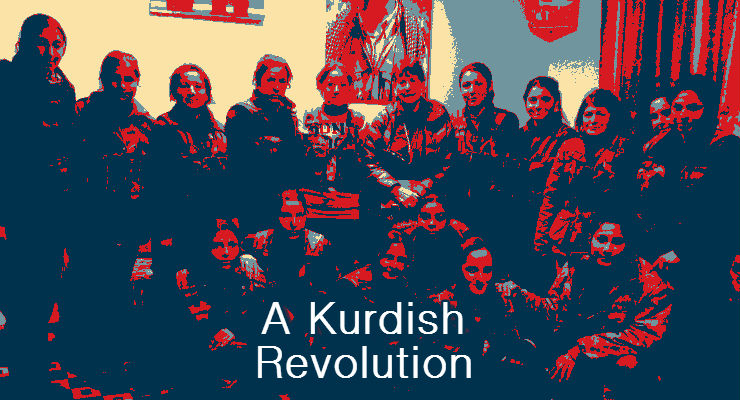
The Kurdish led Syrian Democratic Council (SDC), a political wing of the U.S.-backed Syrian Democratic Forces (SDF), reportedly is in preliminary discussions with Damascus to ensure the future government in Syria is inclusive and represents all sects of Syrian society, including ethnic Kurds.
One key subjectthe SDC is said to be focusing on during the discussions is a proclamation named Decree 107, which Syrian President Bashar al-Assad issued in 2011, months after the protests began. The order reinforces the rule of the central government by tying all districts and provinces to a central authority in Damascus, an arrangement ethnic Kurds oppose.
“The 107 Decree falls short and does not achieve anything for the democratization and decentralization of government. We have experience in governing our areas in Syria, and we see that this might be a model for future Syria,” Riad Darar, co-chairman of the SDC, told VOA.
Darar said initial negotiations with Damascus have not had tangible results, but both sides agreed on the establishment of committees to supervise the implementation of public projects and services in the Kurdish-controlled areas.
“Guarantees have not come from Damascus, but after trust-building and a willingness to talk about how the institutions will be run together and serve people, we can start to say this agreement will result in more comprehensive meetings in the future,” Darar said.
The SDC says the war in Syria has fundamentally changed the political dynamics inside the country and any future Syrian government will need to consider the emerging realities, which call for a more representative government instead of a central authority.
SDF is a key U.S. ally in the fight against Islamic State and currently controls about a quarter of the Syrian territory.
Initial negotiations
The initial negotiations between the Syrian regime and the Kurds came during the signing of an agreement in July to cooperate on the management of the Tabqa Dam on the Euphrates River. It provides electricity and water to the city of Tabqa, an SDFstronghold in eastern Syria.
As part of the agreement, the central government agreed to pay the salaries of local government employees working at the dam. The agreement on the dam paved the way for other discussions between the two sides.
IS captured the Tabqa Dam in 2014; the SDF freed it in May 2017.During the liberation, the dam was partly damaged as the result of fierce fighting between warring factions and the coalition airstrikes. After the liberation of the area, the U.S.-led coalition helped SDF reconstruct the dam and make it operational.
Some analysts see the move by the SDC as part of a larger plan to ingrain the Kurdish identity within the country’s constitution and extend constitutional guarantees to all ethnic groups living in Syria.
The SDC proposal “aims to restore a national identity to the Syrian army and dismantle its loyalty only to the regime, distribute political and administrative authorities to all areas, and recognize the Kurdish identity in the constitution,” Ferhad Hemmi, a Germany-based Kurdish journalist and analyst, told VOA.
Regime opposition
Nicholas Heras, a Middle East expert at the Center for New American Security, a Washington think tank, believes the regime will oppose the idea of delegating power from the central government to local administrations.
The Assad regime “cannot accept the concept of federalism or even the concept of decentralization, because the Baath regime represents the bigger section of the Arab nation in Syria,” Heras said, adding that a decentralized Syria would be a good move for various parties involved in Syria, including the U.S.
“For the U.S., this will allow its forces to remain in Syria in order to build post-IS stability and at the geopolitical level to keep an observer force in place to try to limit the influence of Iran,” he added.
Meanwhile, a U.S. State Department official told VOA the U.S. remained committed to the unity and territorial integrity of Syria, and that the U.S. was aware of the meeting between members of the SDC and the Syrian regime in Damascus, although the U.S. was not a party to the discussions.
The official emphasized that the U.S. fully supports a Syrian-owned and Syrian-led political solution in accordance with U.N. Security Council Resolution 2254, which must include full representation for all Syrians.
Russia, another party in the Syrian conflict, reportedly has leaned toward a more decentralized Syria, but with a continued powerful central authority.
The Assad regime, however, is adamant about keeping the status quo and has opposed any attempt to change the current system of government in the country, including Russia’s proposed solution.
Analyst Heras said the longer the U.S. is invested in Syria, the more time it will give the Kurds to build a strong foundation.
“Since 2012, the local administrative governance has come through the support and the training of the coalition, and the security and structure of the Kurdish areas are being made able to withstand pressure from Damascus,” Heras said.
Syrians’ outlook
Syrians are divided over the issue. A 2018 survey published by The Day After, a Turkey-based nongovernmental organization working for a democratic transition in Syria, found that the main concern among Syrians regarding decentralization was the fear of separatism in the country.
“One-third of respondents who opposed administrative decentralization may have done so out of wanting to keep the country united, especially in light of certain calls and practices that many fear were targeted toward division,” the survey said.
According to the survey, those in the Kurdish-controlled areas supported the idea of decentralization. However, Syrians in the regime-controlled areas opposed it.
The European Council issued a report in 2016 based on another survey by the same NGO, and many respondents said the push to decentralize eventually would lead to partition.
Leave a Reply